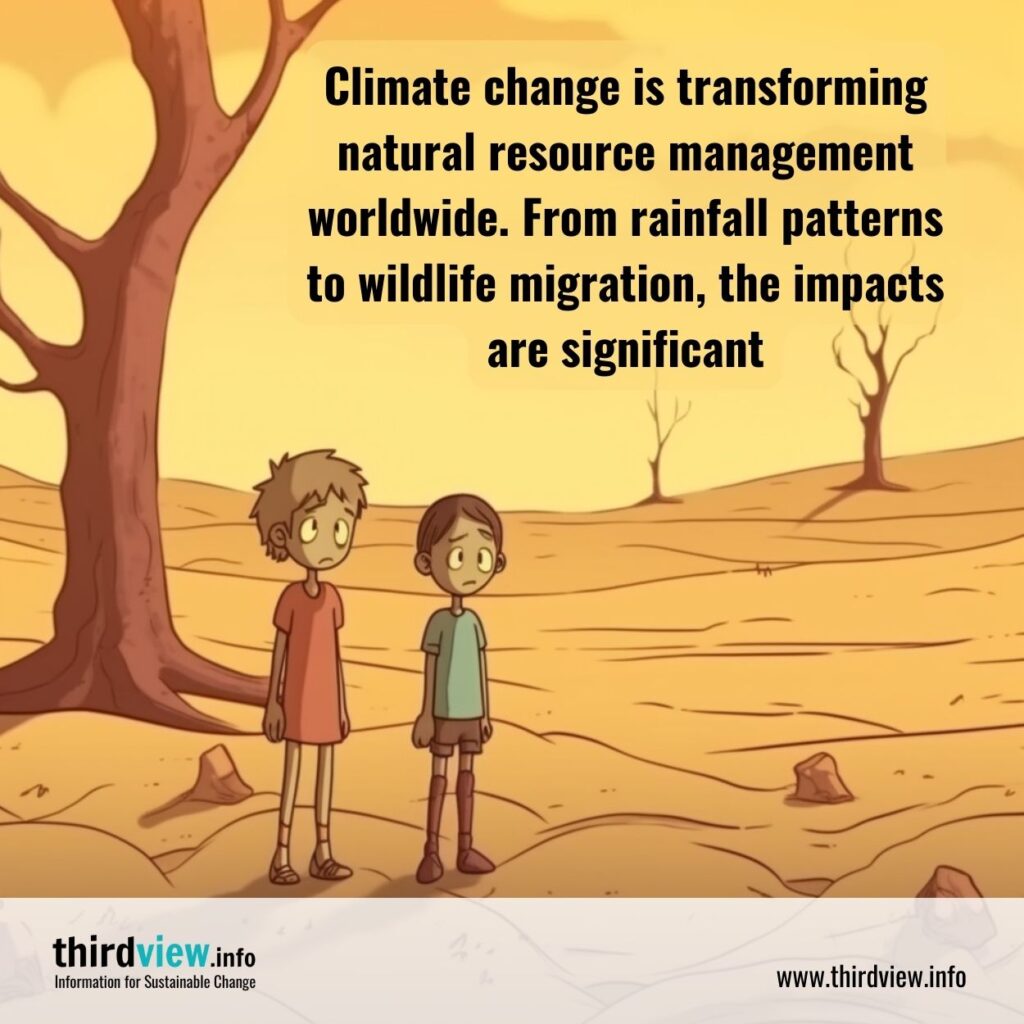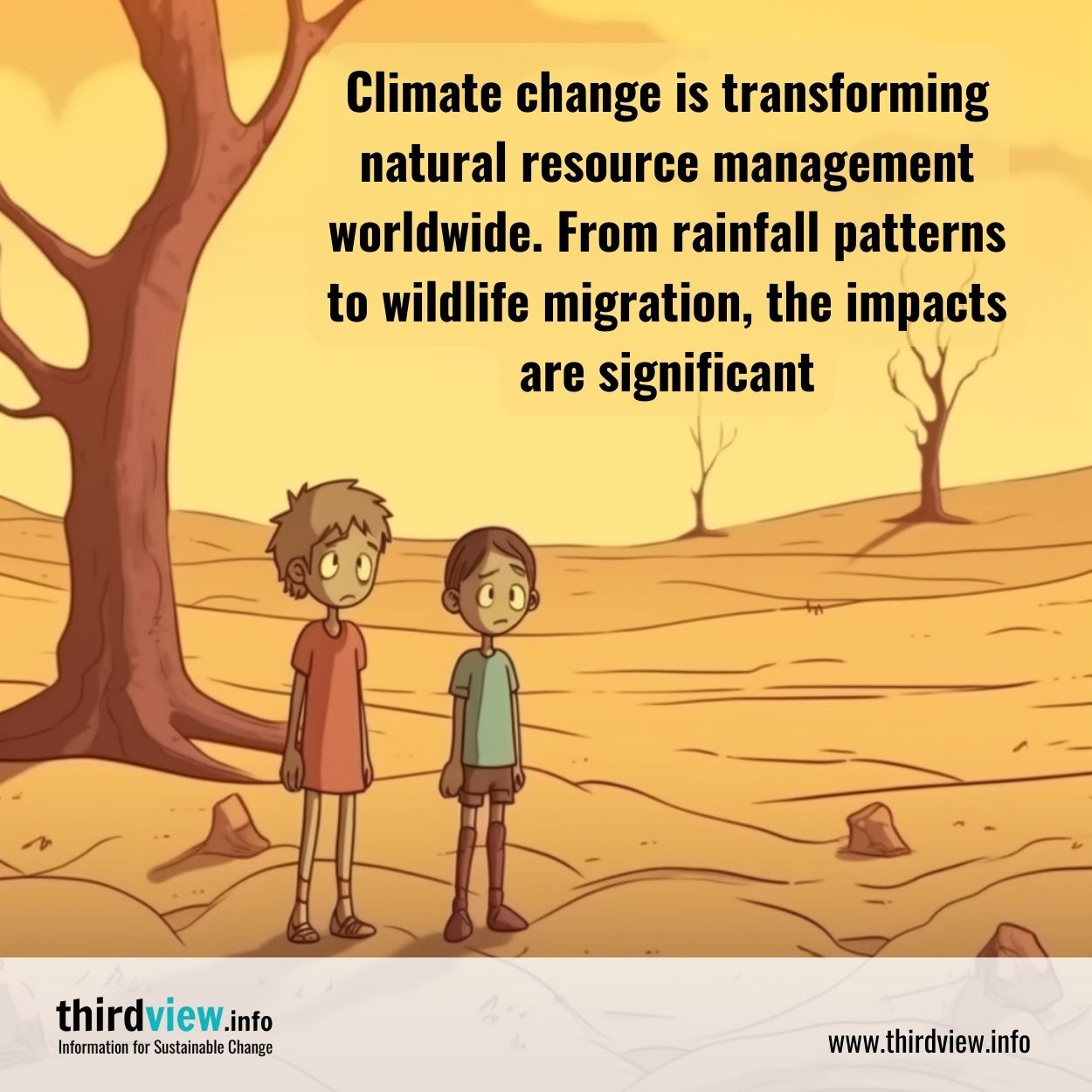Climate change has become a major concern for the whole world as it is affecting every aspect of our lives. The impact of climate change on natural resource management is critical since it has a direct impact on the economy and the lives of people. Natural resource management can be defined as the process of managing natural resources such as land, water, and wildlife sustainably. In this blog post, we will understand the impact of climate change on natural resource management.
Changes in Rainfall
Climate change is resulting in changes in rainfall patterns around the world. Some areas are experiencing droughts while others are experiencing floods. This unpredictability of rainfall is making it challenging to manage natural resources such as water sources. The availability of water is essential for agriculture, drinking, and industrial use. As a result, experts in natural resource management are having to come up with creative ways of managing water resources such as harvesting rainwater and managing the use of existing water sources.
Soil Erosion
Climate change is affecting natural resources such as soil quality. The temperature increases are causing soil to dry out, leading to soil erosion. Soil erosion is a significant challenge to natural resource management. Soil erosion affects agricultural production, and it reduces the ability of the soil to hold water. It also leads to a reduction in biodiversity, which is a significant concern for natural resource management. Conservationists are doing their best to manage soil erosion by encouraging conservation farming and by using soil stabilization methods.
Wildlife Migration
Climate change is disrupting wildlife migration patterns. As temperatures increase, certain habitats become unsustainable, making it necessary for animals to seek other habitats. This disruption in migration patterns can lead to conflicts between animals and humans if animal populations move to areas that are not traditionally inhabited by them. Natural resource managers are working with conservation organizations to monitor the movement of animals and make sure that their movement is safe for them and humans.
Forest Fires
Climate change is resulting in forest fires becoming more frequent and more severe. Forest fires destroy forests, which are a valuable resource. Forests are vital to natural resource management because they are home to many animals, and they help regulate the climate by absorbing carbon dioxide. Natural resource managers are working with governments and conservation organizations to manage forest fires better. This involves planning controlled burns to prevent uncontrolled forest fires and nurturing forests to make them more resilient to forest fire outbreaks.
Sea Level Rise
Climate change is causing sea levels to rise, and this is leading to coastal erosion. Coastal erosion is a significant concern to natural resource managers because it is affecting the livelihoods of people in coastal areas. Natural resource managers are working with governments to develop strategies to protect coastal areas from the impacts of climate change. These strategies may include building sea walls, planting vegetation to hold the soil in place, and encouraging the adoption of sustainable fishing practices.
Climate change is a severe threat to natural resource management. It is an issue that requires everyone to take action to mitigate its impacts. The impacts of climate change on natural resource management are diverse, ranging from changes in rainfall patterns to forest fires becoming more frequent. Natural resource managers have a significant role to play in managing the impacts of climate change. With proper planning and management, we can make sure that our natural resources are conserved for future generations.


